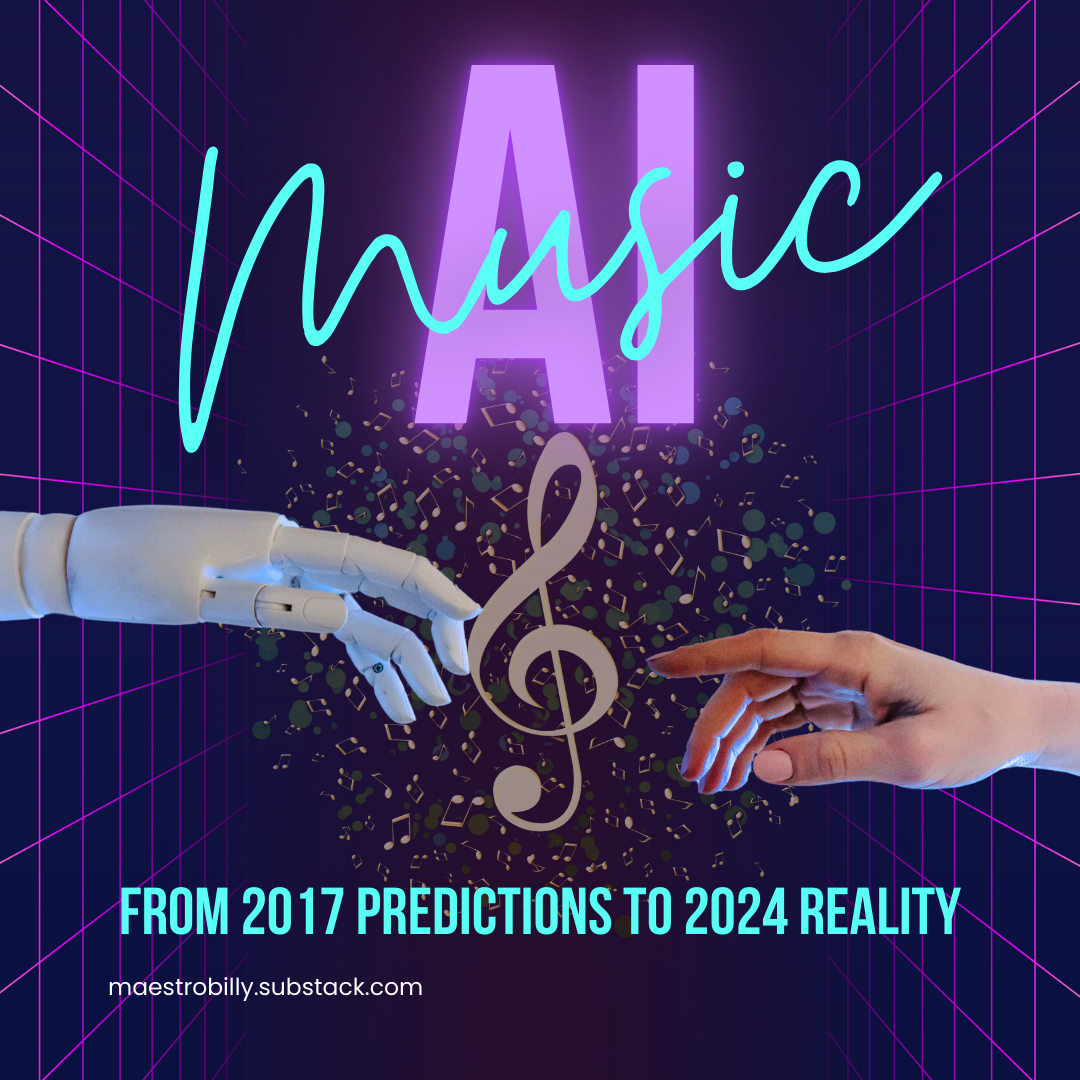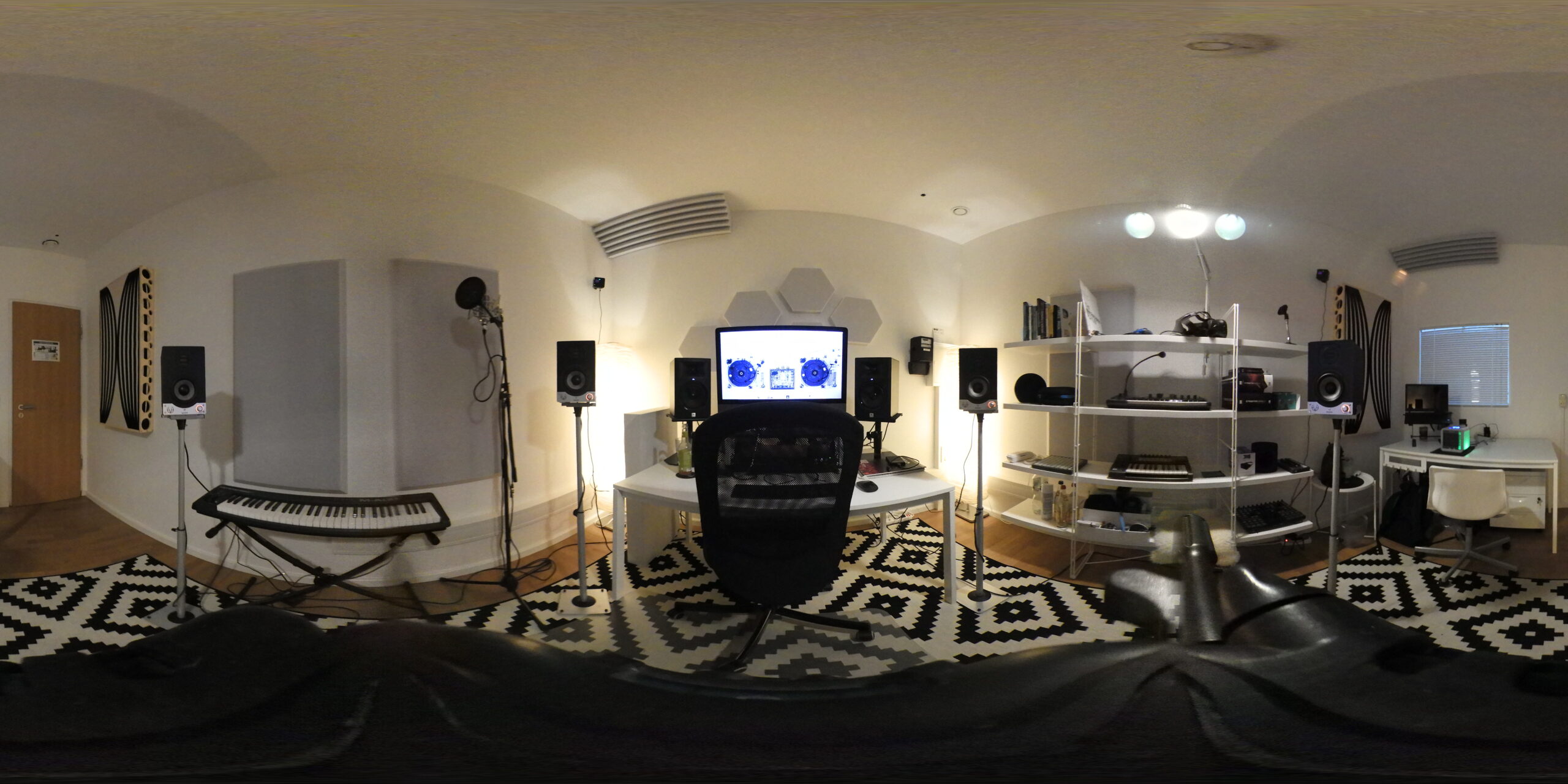What changed in seven years?

Back in 2017, I wrote a blog post (in Portuguese) speculating about the future of AI in the music industry.
Now, seven years later, it’s fascinating to look back and see how those predictions have played out. Let’s explore what I anticipated then and what has actually transpired in the world of AI and music.
The 2017 Prediction
In my original post, I speculated how AI might reshape the music landscape, particularly in the context of streaming platforms and virtual assistants. I imagined a world where companies like Amazon and Google would create their own AI-generated music to save on royalties.
Consider the potential implications when you say “Alexa (or Google), play me some music.” This common phrase used with virtual assistants contains the word “some,” which allows for various interpretations.
What if, instead of playing your favorite artist’s song—which requires paying royalties to record labels—these platforms opt to play an AI-generated song, granting the copyrights to Amazon or Google themselves?
I also raised questions about copyright issues and the potential impact on the industry’s revenue streams.
The 2024 Reality
Fast forward to 2024, and we can see that while some of these predictions have come true, the reality is more nuanced than expected. Here’s how things have evolved:
AI-Generated Music: Major streaming platforms and tech companies have indeed invested in AI music generation, but not to the extent of replacing human artists entirely. Instead, AI is primarily used for creating background music and basic soundtracks.
Personalized Playlists: When users say “Play me some music,” AI algorithms now create highly personalized playlists that blend human-created songs with some probably AI-generated tracks, “enhancing” the listening experience. Sometimes it misses the mark, but I’ll talk more about it below.
Niche Applications: AI-generated music has found its place in specific areas like meditation music, ambient sounds, and functional music for work or study.
Copyright and Legal Issues: As predicted, the legal landscape around AI-generated music has become a central topic of debate. Many countries have established specific legislation to address copyright for AI-generated content, though challenges remain.
The Unexpected Developments
What I didn’t fully anticipate in 2017 was how AI would become a collaborative tool for human musicians.
Many artists now view AI as a creative partner, using it to explore new territories and streamline their workflow. This coexistence of human creativity and AI assistance has opened up exciting possibilities in music production and composition.
Instead of replacing human artists, AI has become a powerful complementary tool that enhances creativity and streamlines the music production process. Here are some key developments:
Creative Collaboration: Many artists now view AI as a creative partner rather than a competitor. This collaboration allows musicians to explore new creative territories and enhance their workflow.
Music Production: AI tools are being used to assist in various aspects of music production, including mixing, mastering, and generating backing tracks. This integration has opened up exciting possibilities in music production and composition.
Personalized Playlists: Streaming platforms use advanced AI algorithms to create highly personalized playlists that combine songs from human artists with some AI-generated tracks. This enhances the user experience and aids in music discovery.
Occasionally, AI algorithms may miss the mark, exposing listeners to songs that seem unrelated to their preferences. This could be due to imperfect algorithms or, potentially, business agreements with record companies and major labels.
Music Analysis: AI helps in analyzing trends, predicting hit songs, and understanding listener preferences. This data-driven approach can inform creative decisions and marketing strategies.
Although this creates a challenge: the potential standardization of songs released nowadays. I’ll explore this issue further in a future post.
But, this integration of AI in music creation has also raised important questions and challenges:
Copyright and Legal Issues: The use of AI in music creation has sparked debates about authorship, copyright duration, and royalty distribution for AI-generated or AI-assisted works. Some countries, like Singapore, started establishing specific legislation to address these issues, although challenges remain.
Industry Dynamics: As major tech companies and streaming platforms invest in AI music generation, we may see shifts in the industry landscape. This could include platform-exclusive AI-generated content and the need for new revenue models.
Ethical Considerations: The use of AI in music raises questions about authenticity, creativity, and the value of human artistry. Balancing AI’s capabilities with preserving the essence of human creativity remains a crucial challenge for the industry.
As we move forward, the key will be finding a balance between utilizing AI’s capabilities and maintaining the unique value of human creativity in music. The industry must continue to adapt and address these challenges to shape a future that leverages AI’s potential while protecting the rights and interests of human creators.
Looking Ahead
As we approach 2025, the integration of AI in music continues to evolve rapidly. While it hasn’t replaced human artistry, AI has become an integral part of how music is created, distributed, and consumed. The industry now faces the challenge of balancing AI’s capabilities with the preservation of human creativity and addressing complex issues like authorship, copyright duration, and royalty distribution for AI-assisted works.
In the end, while my 2017 predictions weren’t entirely off the mark, the reality of AI in music has proven to be more balanced and collaborative than initially anticipated. As this field continues to grow, it will be crucial for all stakeholders – musicians, industry professionals, and lawmakers – to stay engaged in shaping a future that harnesses AI’s potential while protecting the essence of human musical expression.
To wrap up everything, I’ll leave you with a great video, where Stephen Fry reads Nick Cave’s stirring letter about ChatGPT and human creativity.
Best wishes,
Billy.

Leave a Reply